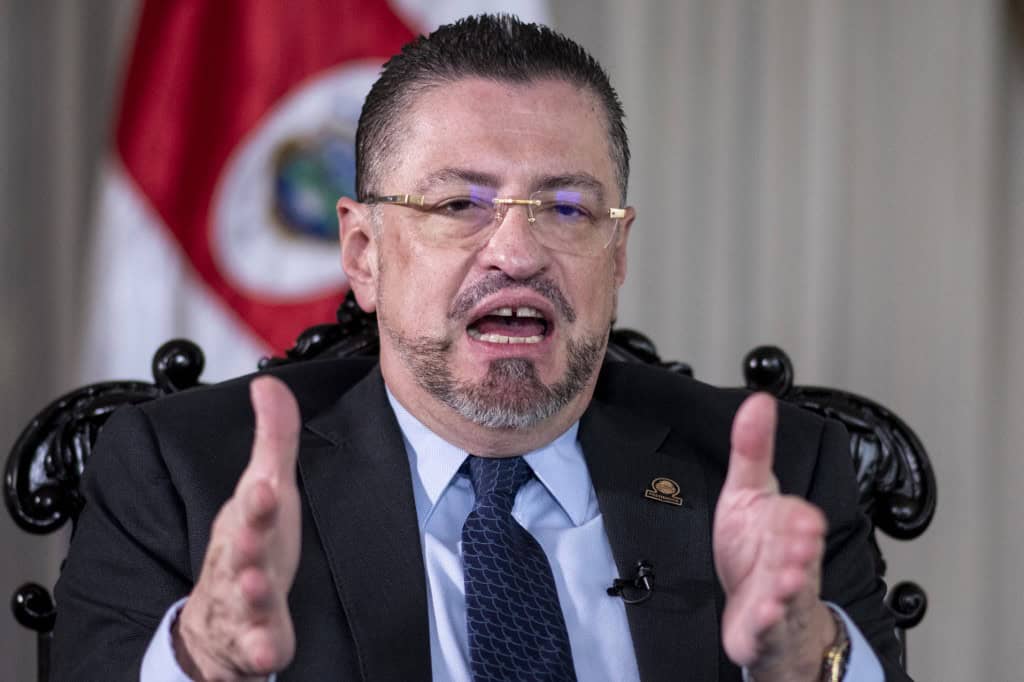On Wednesday, President Rodrigo Chaves didn’t hold back. In his weekly press conference, he slammed the Supreme Court, calling it a “national disgrace” that’s “destroying the little credibility it has left.” His fiery words came just a day after the Court asked Congress to strip his immunity so he can face corruption charges. This clash between Chaves and the judiciary is shaking Costa Rica’s political scene, and it’s worth breaking down what’s happening, why it matters, and what might come next.
The Supreme Court’s move is historic—no president in Costa Rica’s history has faced such a request while in office. With a 15–7 vote, the Court sent a case to Congress accusing Chaves of “concusión,” a crime where someone in power abuses their position for personal gain. The allegations center on a $405,800 contract for communication services, funded by the Banco Centroamericano de Integración Económica (BCIE).
Prosecutors say Chaves and Culture Minister Jorge Rodríguez rigged the deal to favor a company owned by Christian Bulgarelli, with $32,000 allegedly funneled to Chaves’ former advisor, Federico Cruz. Audio leaks from 2023, recorded by ex-Communications Minister Patricia Navarro, back up the claims, catching Chaves discussing the contract’s details.
Chaves isn’t taking this quietly. He insists he’s done nothing wrong, claiming his “conscience is clear.” Rodríguez echoed that, calling the accusations politically driven but trusting “justice will prevail.” Meanwhile, the president’s allies, like lawmaker Pilar Cisneros, dismissed the Court’s request as “absurd,” arguing Chaves had no direct role in the contract.
But the evidence, especially those 2023 audios, has given prosecutors enough to push forward, and now Congress—where Chaves’ party holds just 9 of 57 seats—gets to decide. If 38 lawmakers vote to lift immunity, Chaves could face trial before his term ends in 2026.
This isn’t Chaves’ only legal headache. Another investigation into illegal financing of his 2022 campaign is brewing, with a second immunity removal request pending. Plus, the Supreme Electoral Tribunal banned him from campaigning in the 2026 elections for misusing his position, a blow to his political plans.
Despite these setbacks, Chaves remains defiant, painting the judiciary as an enemy of progress. His style—blunt, combative, and quick to call out critics—has drawn comparisons to El Salvador’s Nayib Bukele. Some Costa Ricans love this, seeing him as a fighter against a corrupt “elite.” Others worry his attacks on judges, prosecutors, and the press signal a dangerous disregard for democratic checks.
What’s the bigger picture? Our country prides itself on stability and strong institutions, but this standoff is testing that reputation. The Supreme Court’s request shows the judiciary is willing to hold even the president accountable, a rarity in many countries. Yet Chaves’ base—bolstered by polls showing 41.8% of Costa Ricans are more concerned about crime than corruption—might see this as a witch hunt. If Congress lifts his immunity, a trial could dominate his final year in office, potentially destabilizing governance. If they don’t, questions about judicial independence could grow.
For now, the ball’s in Congress’ court. The opposition holds enough seats to reach the 38 votes needed, but political deals or public pressure could sway the outcome. Chaves, never one to back down, is likely to keep swinging, as his “national disgrace” jab suggests. Costa Ricans are watching closely, and the next few months could redefine trust in our country’s leadership and institutions.






